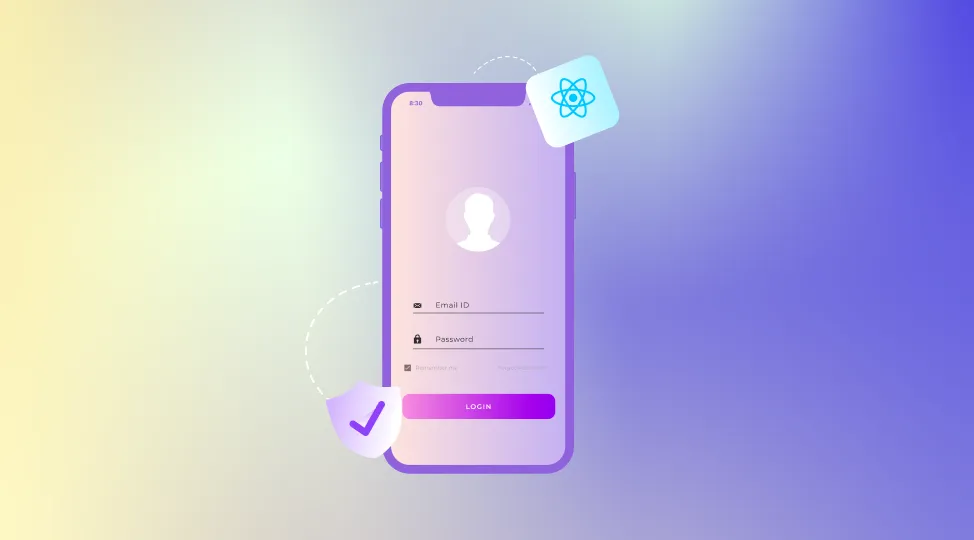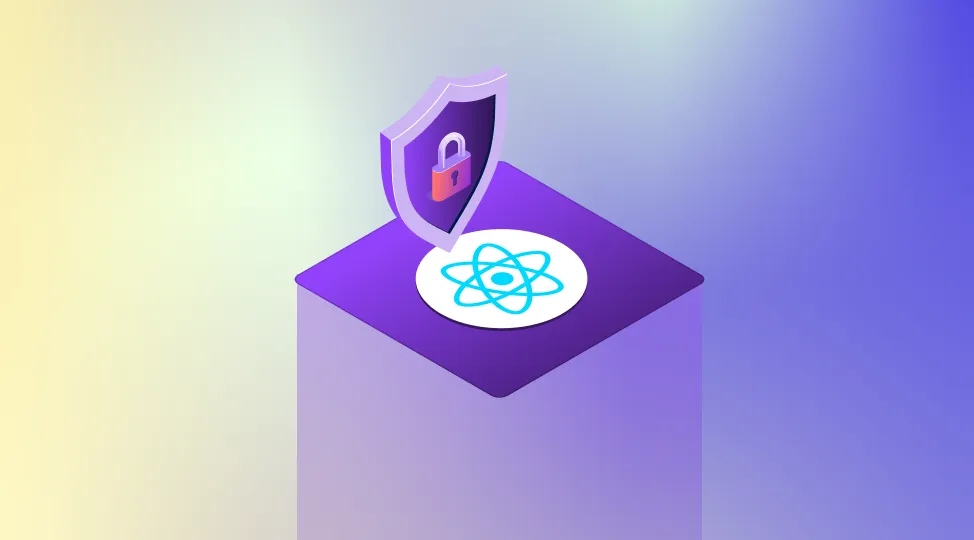Are you noticing a drop in user retention or a high app abandonment rate?
Engaging users in this dynamic marketplace is way more complex. However, mobile app development services for businesses can ease the navigation of the competitive grounds. Yet one type of app doesn’t fit all businesses.
Personalization helps meet customer needs by delivering tailored experiences based on their interests, keeping them engaged and coming back to the app.
In this blog post, we will see effective techniques for personalization, showcasing how top brands have successfully boosted user engagement.
Why Personalization in Mobile Apps Matters for Engagement?
Research shows that more than 80% of customers love to engage with an app that implements personalization. It makes them feel important. However, most businesses need to pay more attention to this fact and only focus on implementing advanced features, forgetting the real essence of serving user intent.
AI Techniques to Boost Customer Engagement in Mobile Apps
Interactive functionality and eye-catching visuals are important for enhancing UI/UX, but they’re just the beginning. To truly stand out in the digital space, there’s much more to consider.
At Quokka Labs, we redefine the strategy to enhance personalization in AI mobile apps. Sharing techniques that improve user interactions and solidify a strong brand entity.

1. Relevant Content Recommendations
If you display generic content to all users, assuming the ongoing market trends and dynamics, all your efforts will be in vain, as the user will feel overwhelmed.
Likewise, your competitor apps analyze user data and what they like to discover frequently and serve them relevant recommendations. Collaborate with the top app development company to access AI-driven mobile app development and improve engagement.
2. Personalized Notification
Customers have more to do than discover the apps for 24 hours. Frequent pings at off-hours may disturb the users, breaking their concentration. Thus, we prefer to offer quality over quantity. Don’t bother the users with frequent pop-ups or alerts.
Leverage personalization to analyze user activity time. Know exactly when they are more active on the app. Set up the notifications popup for a specific time to improve interaction and engagement.
3. Retain Users with Predictive Analytics
It takes time to reach out and develop trust with new customers. However, you can engage existing loyal customers who trust your app features and products. Use predictive analytics tools to gain an in-depth understanding of user behavioral cues.
These tools leverage AI, ML, data analysis, and statistical models. They can discover patterns and interests to deliver relevant features or services.
Furthermore, they can also forecast reports to redefine strategies and plan the next moves for customer engagement through mobile apps.
4. Offer Personalized Deals
Did you know 71% of users uninstall apps because of irrelevant recommendations or complicated user journeys?
This is where AI can make a difference, enhancing your brand’s reputation and growing your customer base. Competitor apps are already staying ahead by using dynamic pricing strategies to reward loyal customers and meet user needs.
To stay competitive, focus on offering personalized deals, adjusting prices smartly, and maintaining transparency. Rewarding users with personalized offers not only boosts engagement but also strengthens your brand’s reputation.
Additionally, Focus on Adaptive UI
Prioritize modern UI design approaches and trends but remember users' needs and comfort. In the end, they will rate your app based on their personal experience. If you want to increase engagement, focus on designing a minimalist and adaptive interface that can fit well on multiple devices.
Avoid over-customization and prioritize the dynamic, adaptive, intuitive dashboard with easy onboarding and navigation features. This type of personalization in mobile apps will make the user feel satisfied without getting lost in unnecessary taps or swipes.
Read Also: Explore the Top 13 AI Trends Shaping Technology in 2025
5 Key Steps to Implement Personalization in Mobile Apps
We tailor user-first experiences, equipping AI models and algorithms to make your app features relevant and meet user expectations.
Get assistance from us for mobile app development services for businesses that prefer the following steps to implement personalization and improve engagement.
- Define the user persona considering the target audience, web or social media channel, and goals to achieve.
- Pick the right generative AI platform to explore and refine the best suggestions from massive datasets.
- Try to balance human context with AI, avoiding redundancy and other errors.
- Keep monitoring the KPIs to analyze the app for further improvements and deliver fresh things.
- Equip the best tools to treat diverse audiences scaling their personalized experiences.
Real-World Examples of AI-Powered Personalization in Mobile Apps

Many top brands across the industry are navigating the competitive grounds with AI-driven mobile app development. AI assists in streamlining operations, improving productivity without burnout. It minimizes human intervention and redundancy and optimizes user journeys without overwhelming users with the need to abandon the apps.
Nike’s
You’ve probably come across the term “Nike by You.” It’s a platform designed to keep Nike’s loyal customers engaged by offering a more personalized shopping experience.
Imagine walking into a store but not finding your favorite shoes in the right color or design. Frustrating, right? That’s where “Nike by You” steps in. It allows customers to customize their shoes exactly how they want—choosing colors, designs, and materials that suit their taste.
It is an AI-powered platform that collects user inputs and provides tailored recommendations to enhance the personalization experience.
This initiative has been a game-changer, boosting Nike’s mobile app revenue by 30%.
Spotify
Ever wondered how Spotify creates those perfectly curated playlists just for you?
It’s all thanks to personalization. Spotify uses AI and machine learning to analyze your listening habits, mood, and preferences. It tracks which genres or moods you enjoy most and which ones you tend to skip.
Based on this data, Spotify updates playlists daily and weekly, incorporating new releases to keep you engaged and discovering songs you’ll love.
Netflix
Netflix is a well-known example of AI personalization. It equips the recommendation system engine to feature personalized viewing suggestions, engaging users to consume the best content of their preferred genres.
The app prioritizes real-time insights into user interaction to deliver the best experience and retain users, extending their streaming time.
If users enjoy binge-watching horror, adventure, crime documentaries, or thrillers, the app will suggest similar content based on what they’ve watched most often. This is all made possible by smart algorithms that tailor recommendations to their preferences.
Starbucks
The brand successfully implemenented and adopted the capabilities of Generative-AI models and increased sales by 20%-30%.
Starbucks’ leveraged contextual-based personalization. In this strategy, the app collects user data, such as real-time location, weather conditions, and past orders, and generates recommendations that resonate with users' needs.
Users timely receive personalized notifications to refresh their day, picking the right choice of drink pop-up on the screen timely based on the collected data.
All such cases reflect the need to understand the customer's emotions and needs and tailor the strategy. Follow the trends, but remember your customers' comfort. Ignoring personalization in mobile apps or not prioritizing the customer’s expectations may impact your business revenue.
Closing Thoughts
The power of AI-powered mobile apps is amazing. It can boost your business by 20%- 40% by impressing your loyal customers with unique recommendations. If you are finding it complicated to convince your users to keep engaged with your apps, focus on gauging user interest and preferences with smart AI apps.
We’re here, to offer consultation-related AI-powered app development services for businesses that will make your brand standout across the industry.
FAQs
Q1: What do you mean by Recommendation Engine?
Ans: Its AI-equipped system focuses heavily on ML and data analytics to detect patterns and behaviors and generate relevant suggestions for a better user experience.
Q2: How do AI recommendation engines help businesses to boost their revenue?
Ans: These engines use machine learning and data analytics to manage the data collection process, analyze patterns and user behavior, filter the best choices, and generate recommendations. They tap and access different data points to gain insights into transactions, past purchases, curations, and attributes to understand users' preferences.
Q3: How does NLP play a role in personalization?
Ans: Any app leveraged with the NLP system will access user insights, search queries, reviews, and comments. By utilizing sentiment analysis, topic modeling, and object entity recognition techniques, the app can assess and process the results that align with the user's interests.
Q4: What is Collaborative Filtering?
Ans: It’s a personalization strategy that caters to a large user base, considering an array of interactions, reviews, and ratings. This AI-powered system collects data from multiple users, identifying buying patterns, behaviors, and preferences and tailoring suggestions accordingly. If two users purchase the product and have simpler preferences and tastes regarding it, the AI-powered system will recommend this product to the other user for purchase.
Tags
AI-Powered Mobile Apps
App Engagement with AI
Personalised User Experience
Data-Driven App Development
AI and User Experience
Mobile App Personalisation
Customer Engagement Strategies
AI-Driven Mobile App Developme
Personalisation in Mobile Apps



 Facebook
Facebook
 Twitter
Twitter
 LinkedIn
LinkedIn
 Pinterest
Pinterest







